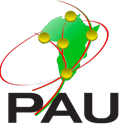MASTER OF ARTS IN TRANSLATION
Mode of Delivery of the Programme
The mode of delivery for the proposed programme will be face-to-face lectures. The face-to-face learning will entail an interactive teaching style including lectures, group work, classroom presentations and seminars with leading experts - academics and practitioners - in the field from across the Continent, the diaspora and beyond.
Duration
The Masters Programme at PAUGHSS will take two (2) years divided into four (4) semesters.
Programme Structure
The Programme will consist of 4 Core Courses and 3 Elective Courses. The Course codes represent “Pan-African Masters in Governance & Regional Integration” (PMGR); codes ending with odd numbers are first semester courses while those ending with even numbers are second semester courses.
Attachment/Internship shall be an integral part of the programme to provide an opportunity for students to obtain practical experience in their field of study or research activities. The internship will be at national, regional or continental institutions, including research institutes, NGOs, private sector entities, working on matters pertaining to governance and regional integration. To guarantee effectiveness, the internship will cover a full semester.
In the First Semester, all Students study together but go on to specialise in two separate tracks - Governance or Regional Integration - in the Second Semester.
The first year (Semesters 1 and 2) involves lectures, seminars and other classroom activities whereas the second year (Semesters 3 and 4) are dedicated to an Intern ship followed by Dissertation Writing.
Prospective Career
PAUGHSS graduates will be expected to provide technical expertise and managerial leadership to governments, regional organisations, the private sector and civil society on the Continent and beyond.
The teaching, especially, of regional integration as a stand-alone MA and PhD programmes on the African Continent is still in its infancy. Consequently, this programme will also be a rich source of Africa’s future academics and researchers in this field.


